Get swept up with the women working in the latest renewable energy resource sector – Offshore Wind Farms.
Those that work in the Energy Sector can have a bad reputation to the environmentally-conscientious global community, as we are frequently labelled, ‘The Pillagers and Plunderers’ of Earth’s natural resources.
The quality of life that the global population is now afforded, comes with great ecological sacrifice: The necessitous need to ‘feed the beast’ that propels attempts to quench our insatiable, consumeristic thirst for new technological innovations. Offshore wind farms have pulled ahead of the long line of industries who are attempting to implement these eco-friendly technologies to their economic advantage.
Going for the gust-o
Fortunately, we now have a relatively young, thriving and environmentally progressive offshore sector to help blow off that negative stereotype, that uses sustainably green and innovative technologies to harness wind power out on the open water. The offshore world now boasts an industry that Patchouli Princesses, Granola-Crunchers and Plunderers alike, can all call their place of work. Remote geographical locations of the world of energy resources, elicit a sense of grandiosity to those that work in field operations. (Don’t tell me you wouldn’t feel like a V.I.P., flying to work in a helicopter, over one of the globe’s oceans.)
As The Global Wind and Energy Council (GWEC) reported, 2016 was a banner year for the young maritime industry as investments into the market grew by a whopping 40% by the end of last year. Nearly 88% (12,631 MW) of all offshore wind installations were located in the waters off the coast of ten European Union countries – The UK being the world’s largest offshore wind market, accounting for just under 36% of installed capacity, with Germany closely behind at 29%. The remaining 12% of the global market is divvied up between China, followed by Japan, South Korea and the United States.
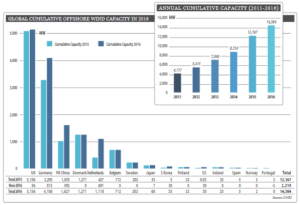
Where are the women in wind?
Regardless of GWEC’s encouraging reports of the sector’s growth, it is difficult to ascertain the percentage of women working in offshore wind farms. Historical data for women working this industry is quite hard to come by, due to the sector’s infancy. However, the historical data concerning how much importance the female populous base their personal and family-related decisions on issues pertaining to the sustainability of the environment, is far more telling data to this industry-wide question. Here’s why:
Some of the scant data suggests that women are ‘greener’ than men. Women consistently favour values that concern environmentalism, as a way to protect their children and families. Some European studies have even drawn the correlation to the fact that as women tend to be at home raising their families, they have a smaller carbon footprint as they contribute less to air pollution: They are typically the primary caregivers and spend more time at home. Resulting in a smaller carbon footprint with their family sedans and ‘mom vans’ vs. their husbands, usually more typical, mode of transportation of gas-guzzling, dually trucks and airplanes on long-distance business trips.
Stiletto savvy and industry insight
To get some personal industry insight, Women Offshore turned to the Miss Great Britain Pageant where we had boots – er… rather, stilettos on the ground and had direct, first-hand industry knowledge of the ins and outs of women in the offshore wind energy industry.
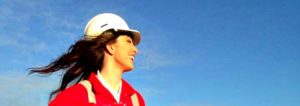
Hayley Adlam: Miss Great Britain 2017 Finalist and UK Wind Farmer
I followed up to ask Hayley a few more questions following the publication of her Featured Women post at Women Offshore. Undeterred by some of the tough questions, Hayley answered with the grace of true pageant queen and the moxy of a seasoned, industry professional.
1. Do you think women are ‘greener’ or more environmentally conscientious than men? If so, why do you think that is?
2. Is there any sort of stigma within the environmentally conscious offshore sector, against the other half who punches holes in the bottom of the ocean just to suck all of her black gold out? (I’m actually quite curious about this one…!)
3. How many people in the offshore wind business, would you consider to be staunch environmentalists? Are most of them average, ‘Normal Joes’ or do you see a notably higher percentage of green activists in that industry?
4. How would you rebut a comment from someone who pointed out that you were burning a pile of fossil fuels in order to get to your ‘green’ work? What if they felt it was a bit hypocritical and why should they change their day-to-day lives for the sake of saving the Earth, one measly plastic bag at a time?
Working together in harmony
As it turns out, it seems that the perceived ‘Resource Pillager’ vs. ‘Captain Planet’ distinction within the renewable energy wind farm sector is, really, a non-issue. Women in STEM (science, technology, engineering and mathematics) are finding their niche within this young industry and are making their mark in the history books to continue the important work in the renewable energy sectors. In the end, we are all one people, working towards a common goal of ameliorating our impact on the globe, for all of our future generations.
We wish Hayley the best of luck in her aspirations to use her upcoming Miss Great Britain Pageant as a platform to promote and encourage our incredible STEM women to work offshore. We’ll all be cheering for you, Hayley!
Do you have any comments or opinions on this article? We would LOVE to hear them! Let us know by becoming a member and then leaving us a reply in the comment section, below!
Feature Photo Source: Offshore Wind Farm.
Save
Save
Podcast: Play in new window | Download (5.6MB)

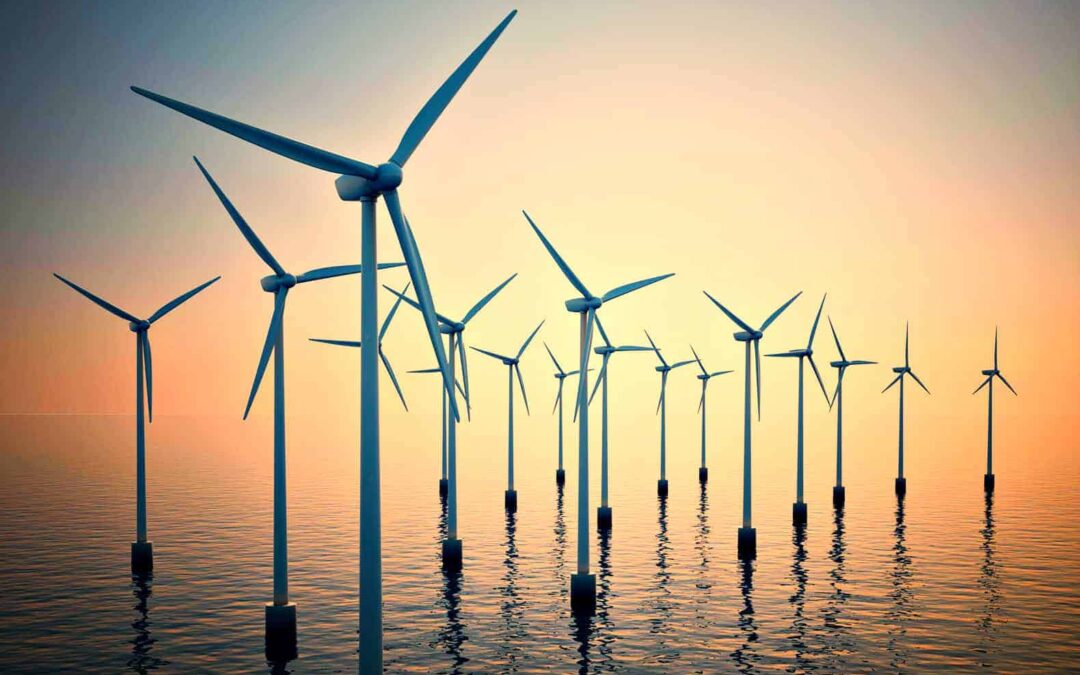

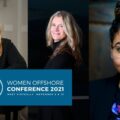

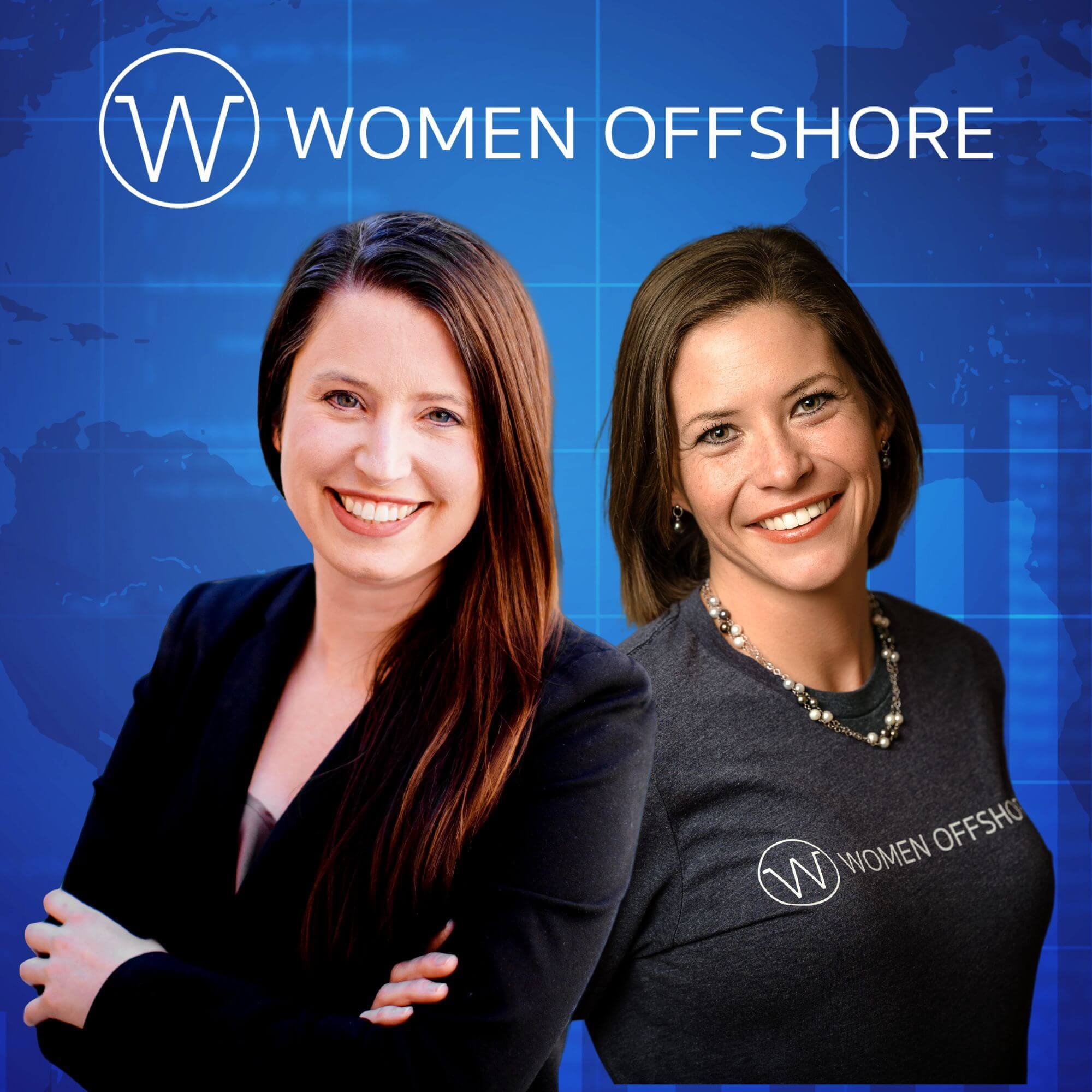


Recent Comments